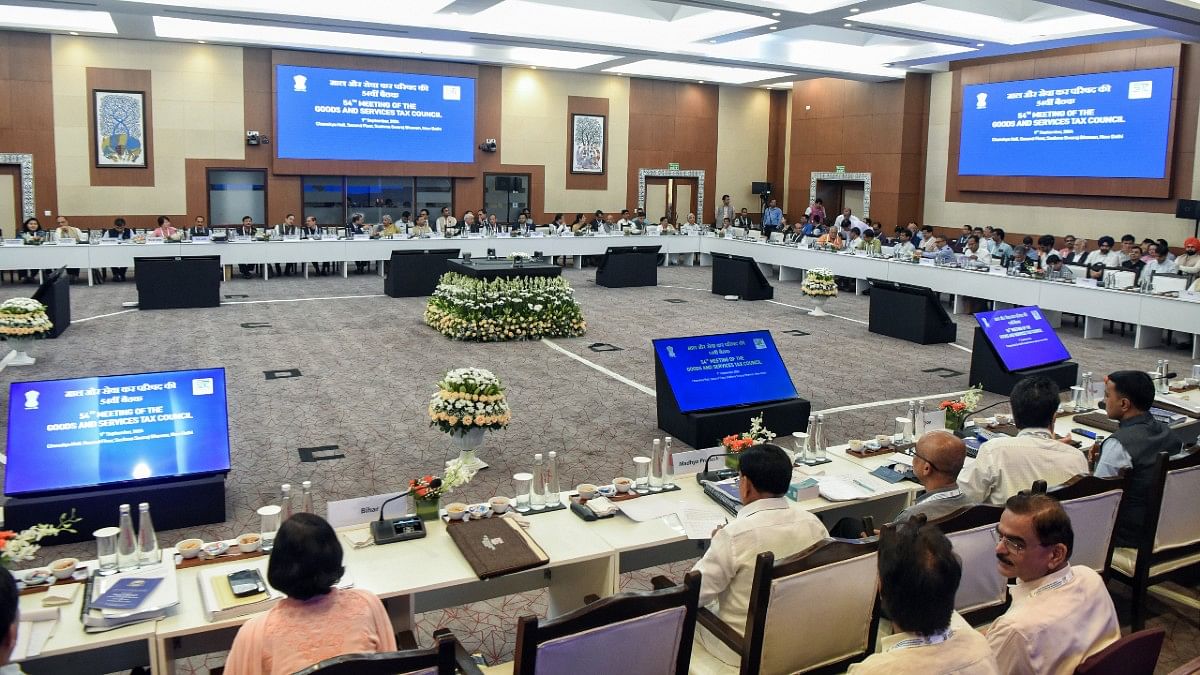New Delhi: With the GST Council deciding to exempt central and state-governed higher education institutions from paying GST on their research funding, notices issued to some prominent institutions, including IIT-Delhi, Anna University, and Punjab University, regarding their pending GST payments, will no longer be pursued, ThePrint has learnt.
The Goods and Services Tax (GST) Council in its 54th meeting Monday decided to exempt universities and research centres either governed by the central or state government, or those exempted from Income Tax, from paying GST on research grants. The exemption is for research grants received both from the government as well as the private sector.
Until now, they had to pay 18 percent GST on their research funding.
The decision came a month after several educational institutions in the country were issued show-cause notices by the Directorate General of Goods and Services Tax Intelligence for not paying GST on research grants they had received.
While IIT-Delhi reportedly received a notice of Rs 120 crore, Anna University in Tamil Nadu received notice for Rs 36 crore for research grants received during the period between 2017-18 and 2021-22. Following this, the Union Ministry of Education intervened and initiated talks with the Ministry of Finance.
According to officials at the Department of Revenue, the GST Council’s decision will take into account past cases on an ‘as is, where is’ basis.
“This means companies that have already paid GST on grants they got will not get a refund. But for companies that have so far not paid, they will not need to pay,” said an official at the department, requesting anonymity.
This is different from a retrospective change which would have meant that companies that have paid the GST would get a refund, the official added. “And also different from a prospective change, where all companies that had received notices in the past would have to pay the dues.”
Officials at the education ministry said they are yet to receive a notification from the finance ministry even as they also believe that the notices issued to several higher education institutes will now stand void.
Also Read: 28% GST on gambling: Only on buy-in, not winnings, says Sitharaman amid concerns of double taxation
Big relief for research ecosystem
Officials at higher education institutions that received show cause notices termed the GST Council’s decision a “big relief”.
“Effectively it means more research funding. It is an acknowledgment of the fact that the government is supporting research. When we support research it does not make sense to tax sponsored research because research by its very nature is a public good. So, this exemption is a well thought out decision. It is a big relief for public institutions and for us specifically,” said Rangan Banerjee, Director IIT-Delhi.
Sivakumar, director of the Centre for Sponsored Research and Consultancy at Anna University, said being asked to pay GST on research funding was not the right approach to begin with.
“It is because we receive the funding from various ministries and we should not have got the GST show cause notice that we had received. We are now completely exempted from such components. Ours is a research institution and we do not run it for profit. We cannot promote the research ecosystem if we charge GST on research funding only,” he told ThePrint.
‘Tax terrorism’ & Centre’s response
AAP leader and Delhi Education Minister Atishi had raised the issue and termed it “tax terrorism”.
“The Delhi government, Punjab government and Aam Aadmi Party have been continuously raising this issue that the educational institutions which get research grants should not be subjected to GST. Imposing GST on it is equal to tax terrorism and we are happy that the central government as well as all the state governments agreed to this…” she told the media Monday.
However, during the press conference following the GST Council meeting Monday, Union Finance Minister Nirmala Sitharaman clarified that the notices could not be termed “tax terrorism”, arguing instead that they were sent out by officers who wanted to do their job properly, as some research funding had a component that could be perceived as a “quid pro quo arrangement”.
(Edited by Amrtansh Arora)
Also Read: Modi govt clears GST dues worth Rs 16,982 crore, says paperwork delayed on part of 15 states

